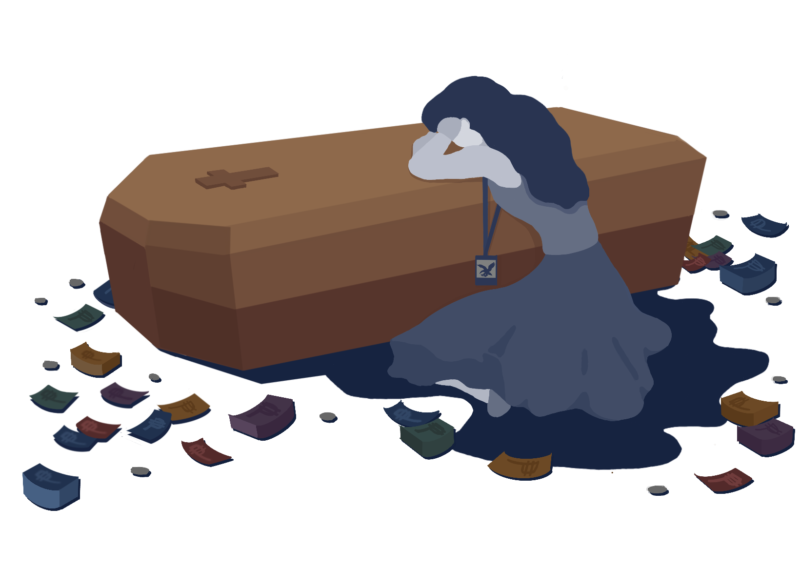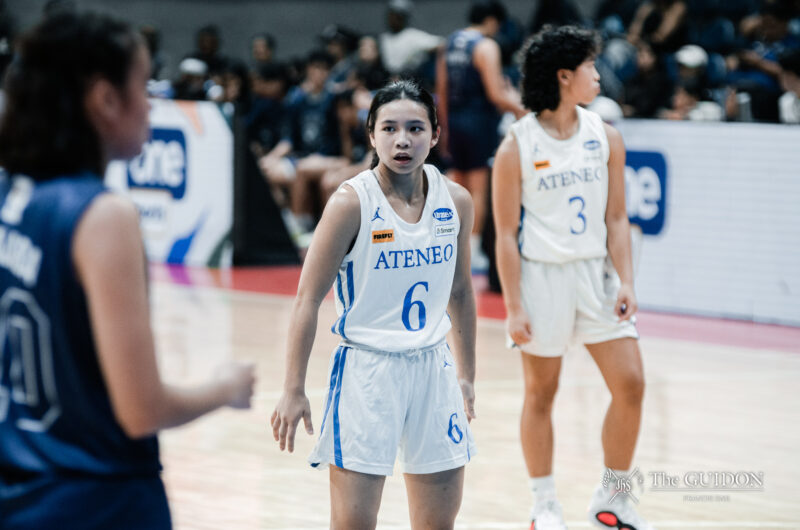WHILE everyone in his house is asleep by 1:30 am, Kevin* was in the kitchen, boiling eggs and looking for other food in the refrigerator. Waiting for him were class readings, two 30-page, unedited papers, an unfinished presentation, and notes that cover three long tests. They are either due that day or the next.
“I have to eat,” he says. “Popeye has [his] spinach. Scooby Doo has [his] Scooby snack. Why can’t I have [food to boost my energy]?” Kevin’s eating habits are his way of coping with academic stress.
Besides indulging in midnight snacks, which usually consist of fried jumbo hotdogs and eggs, he eats a lot of candy, junk food, and other “piso food” that are sold by his family’s mini-grocery.
When Kevin’s friends found out about his eating habits, he became the subject of ridicule. The mockery, however, seems to have only reinforced these habits.
“To cope with the mockery, I eat,” he says in a mix of Filipino and English. “It has become cyclic for me.”
Extreme caloric intake
The term “calorie” refers to a unit of heat energy input possessed by food. An average individual needs 2000 Calories or 2kCal in order to perform daily activities and regulate bodily processes. This number varies per person since rate of metabolism and amount of physical activity done likewise differ.
Caloric intake is not hard to maintain, says Health Promotion and Education Department of University of the Philippines’ College of Public Health Assistant Professor Buenalyn Ramos.
“All you need to know is whether the food requirement satisfies the calorie requirement,” she says. “You need to take note also of your physical activities. It must go hand-in-hand. The net results are those digits.”
Keeping up the required caloric intake in a university setting, however, is a different story. Stress and anxiety force some students to change their eating lifestyle.
“The academic environment, especially [on days when exams and presentations are nearing] poses as a stressful event,” says Ramos. “From what I have observed, when [students] are stressed, they either overeat or undereat. They go into extremes.”
Overeating when stressed
According to Senator Miriam Defensor Santiago, between five million and 10 million girls and one million men are suffering from eating disorders such as anorexia nervosa, bulimia nervosa, and binge eating disorder, among others. Meanwhile, the High Risk Model of Threat Perception (HRMTP) reveals that chronic stress greatly induces these disorders. Sources of chronic stress may include physical, emotional, and sexual abuse, difficult interpersonal relationships, academic difficulties, and the like.
While Kevin overeats while preparing his academic requirements, Joshua Jornales (I BS Bio) seeks the comfort of food after encountering the stress. “I feel that it is through eating that I can release the stress,” he says in a mix of Filipino and English. “I sort of forget about those low grades.”
Both Kevin and Joshua say, however, that they continue to overeat even when they’re not stressed with academics.
Meanwhile, Amy*, who also overeats when she’s stressed, says that she normally eats little. She says that she gets hungry more frequently than the usual when she’s stressed and turns to food like chocolates for comfort.
“If it’s only during certain events and only at the start [of college, then] it’s a normal reaction,” says Ramos. “[When] it’s not anymore a reaction, it becomes part of the [person’s routine]. If this overeating or undereating becomes a norm,that becomes a problem.”
“Long-term consequences”
If left unattended, continuous overeating may result to compulsive eating or binge eating disorder. The victims of the disorder handle stress by turning to food for comfort. Their eating habits then interfere with their lifestyles. These diseases then lead to more stress, however, because of obesity and ridicule caused by people that surround these victims.
While compulsive eaters eat privately and feel ashamed of these habits, as well as their weight, binge disorder victims excessively eat and display a lack of control within short, episodic time frames.
Students should be careful about this kind of coping mechanism, says Psychology Assistant Professor Karina Fernandez, Ph.D. “It gives short-term satisfaction with possible long-term consequences.”
Coping with stress isn’t the only reason that students develop eating disorders. Sometimes, they are caused by factors that determine one’s personality and motivation. Some girls, for instance, seem to feel a loss of control over their lives. They try to divert that “control” to their bodies.
“Not eating is an unconscious way of avoiding growing up. By still looking like a child, a young lady avoids the problems, responsibilities and issues that go with being a grown-up,” she says.
Loyola Schools Guidance Office Counselor Jovie Valle adds that in some cases, the person is aware of his disorder and gets “fulfilment” out of it.
Coping with it
While there have been Ateneans who admit to having eating disorders, the number hasn’t reached an alarming number yet. These people however, only admit to it when it has “cured itself.” Valle cautions that sometimes it’s difficult to treat an eating disorder alone.
“You need to know when to ask for help,” she says. In extreme cases, seeking a doctor’s advice is necessary.
To avoid his eating habits, Jornales plays sports like volleyball, while Amy resorts to Karaoke and the internet. Meanwhile, Kevin tries to reduce the stress by watching television while studying. During these times, however, he continues to eat.
Creating a good self-image is important in order to prevent or fight an eating disorder. People who haven’t established their own identity are more prone to succumbing to pressure and developing disorders, says Valle.
Valle adds that in the college world, especially in the Ateneo, there’s no way to escape stress. Students have to find their own way of handling stress without having to sacrifice their health.
*Names have been changed to protect the individuals.






